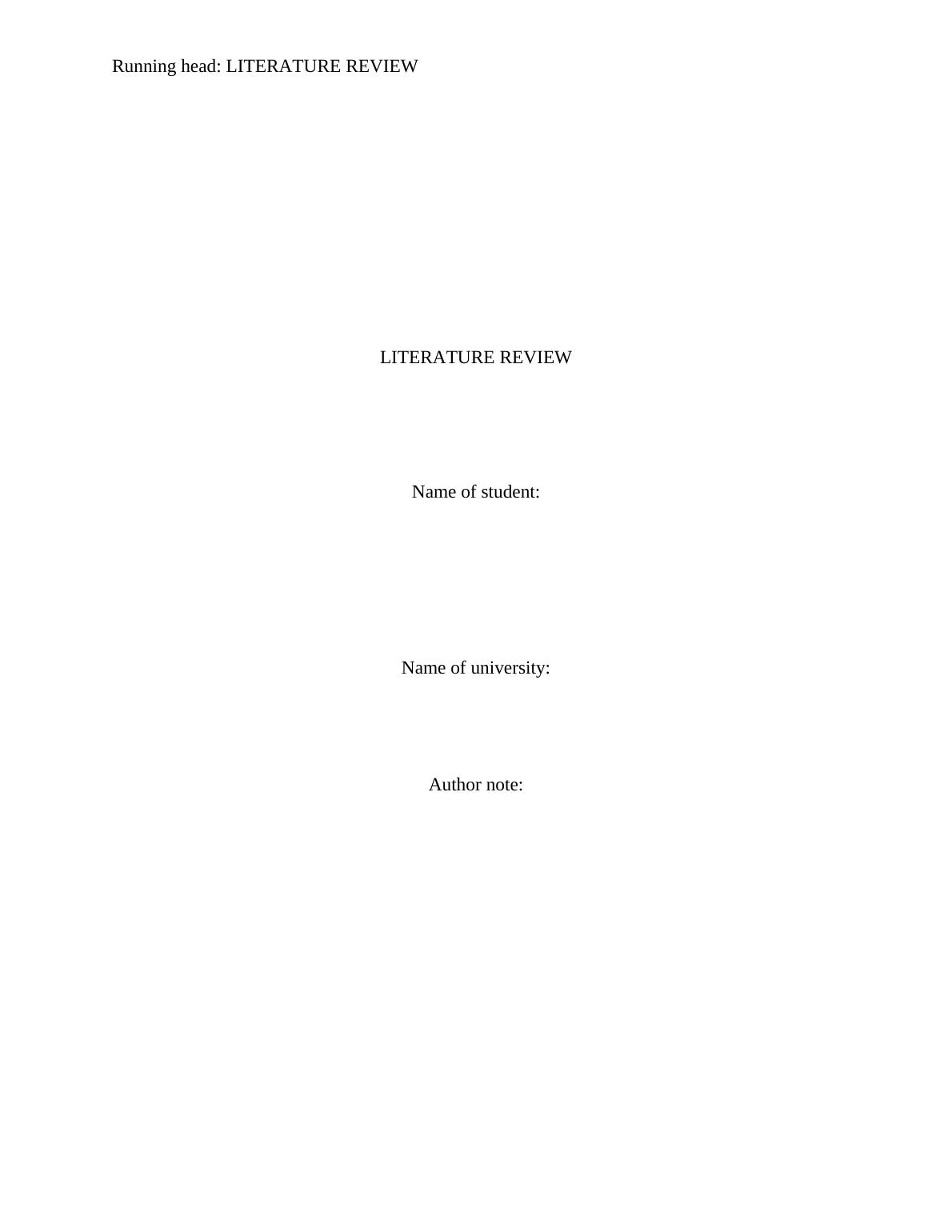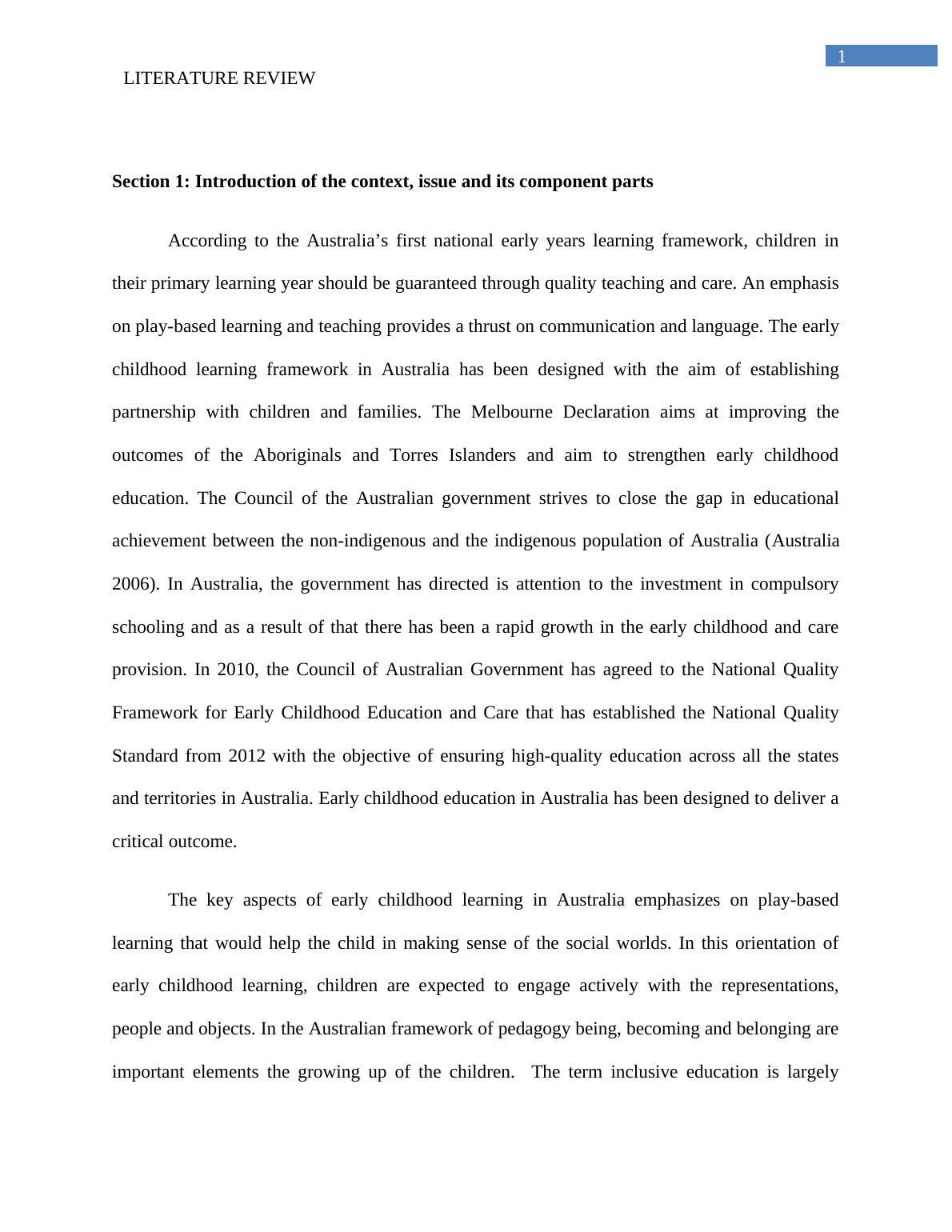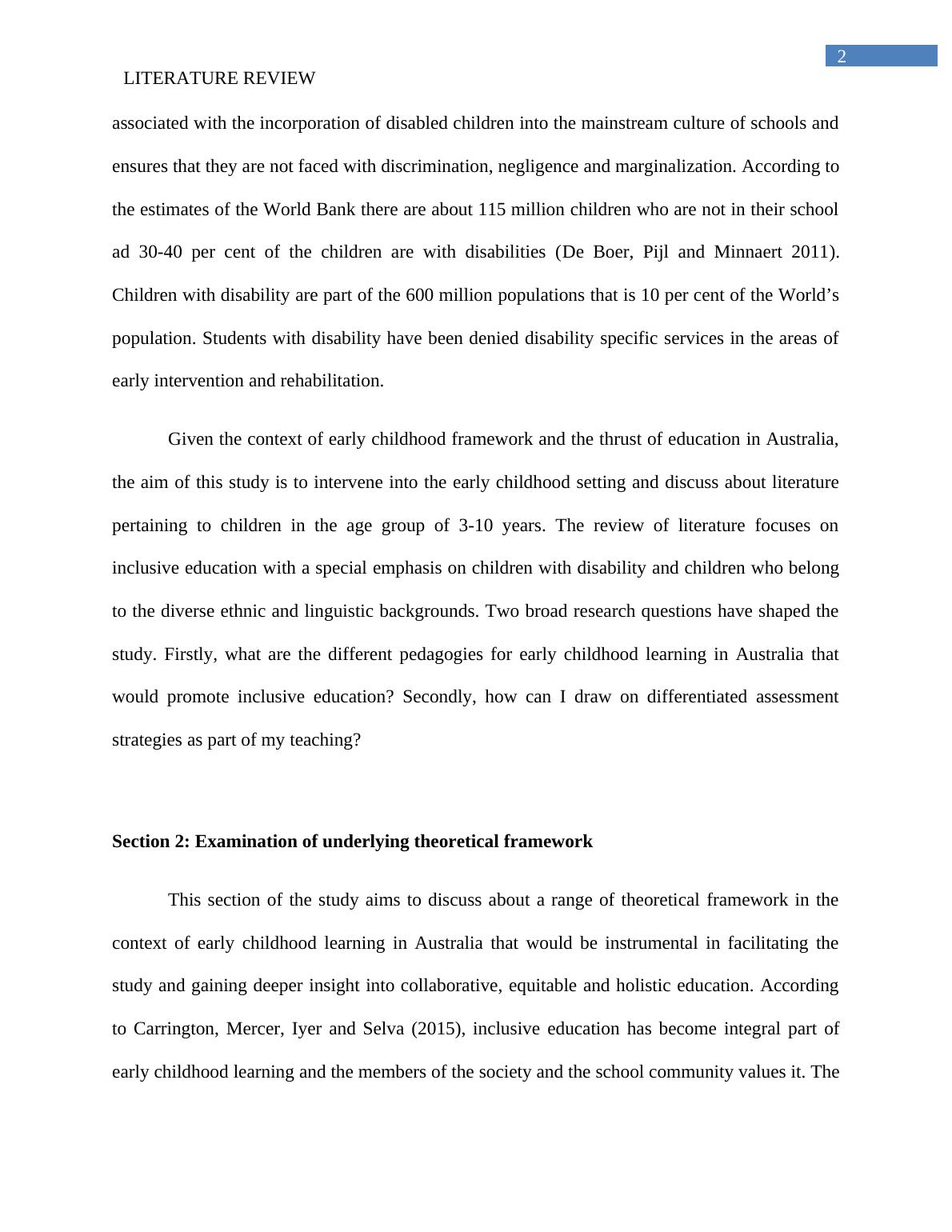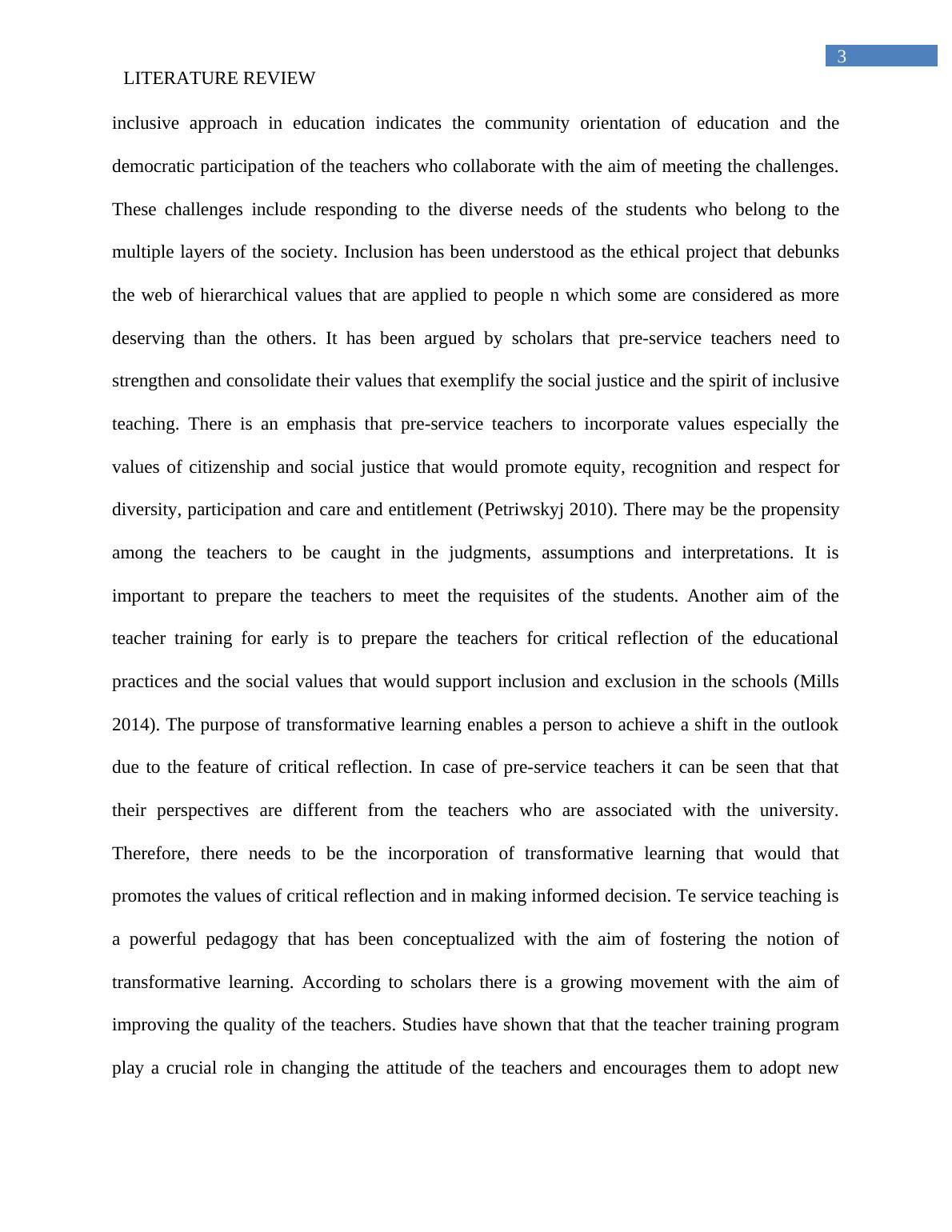Framework for Early Childhood Education
Added on 2021-05-31
13 Pages3564 Words110 Views
Running head: LITERATURE REVIEWLITERATURE REVIEWName of student:Name of university:Author note:

1LITERATURE REVIEWSection 1: Introduction of the context, issue and its component parts According to the Australia’s first national early years learning framework, children intheir primary learning year should be guaranteed through quality teaching and care. An emphasison play-based learning and teaching provides a thrust on communication and language. The earlychildhood learning framework in Australia has been designed with the aim of establishingpartnership with children and families. The Melbourne Declaration aims at improving theoutcomes of the Aboriginals and Torres Islanders and aim to strengthen early childhoodeducation. The Council of the Australian government strives to close the gap in educationalachievement between the non-indigenous and the indigenous population of Australia (Australia2006). In Australia, the government has directed is attention to the investment in compulsoryschooling and as a result of that there has been a rapid growth in the early childhood and careprovision. In 2010, the Council of Australian Government has agreed to the National QualityFramework for Early Childhood Education and Care that has established the National QualityStandard from 2012 with the objective of ensuring high-quality education across all the statesand territories in Australia. Early childhood education in Australia has been designed to deliver acritical outcome. The key aspects of early childhood learning in Australia emphasizes on play-basedlearning that would help the child in making sense of the social worlds. In this orientation ofearly childhood learning, children are expected to engage actively with the representations,people and objects. In the Australian framework of pedagogy being, becoming and belonging areimportant elements the growing up of the children. The term inclusive education is largely

2LITERATURE REVIEWassociated with the incorporation of disabled children into the mainstream culture of schools andensures that they are not faced with discrimination, negligence and marginalization. According tothe estimates of the World Bank there are about 115 million children who are not in their schoolad 30-40 per cent of the children are with disabilities (De Boer, Pijl and Minnaert 2011).Children with disability are part of the 600 million populations that is 10 per cent of the World’spopulation. Students with disability have been denied disability specific services in the areas ofearly intervention and rehabilitation.Given the context of early childhood framework and the thrust of education in Australia,the aim of this study is to intervene into the early childhood setting and discuss about literaturepertaining to children in the age group of 3-10 years. The review of literature focuses oninclusive education with a special emphasis on children with disability and children who belongto the diverse ethnic and linguistic backgrounds. Two broad research questions have shaped thestudy. Firstly, what are the different pedagogies for early childhood learning in Australia thatwould promote inclusive education? Secondly, how can I draw on differentiated assessmentstrategies as part of my teaching?Section 2: Examination of underlying theoretical frameworkThis section of the study aims to discuss about a range of theoretical framework in thecontext of early childhood learning in Australia that would be instrumental in facilitating thestudy and gaining deeper insight into collaborative, equitable and holistic education. Accordingto Carrington, Mercer, Iyer and Selva (2015), inclusive education has become integral part ofearly childhood learning and the members of the society and the school community values it. The

3LITERATURE REVIEWinclusive approach in education indicates the community orientation of education and thedemocratic participation of the teachers who collaborate with the aim of meeting the challenges.These challenges include responding to the diverse needs of the students who belong to themultiple layers of the society. Inclusion has been understood as the ethical project that debunksthe web of hierarchical values that are applied to people n which some are considered as moredeserving than the others. It has been argued by scholars that pre-service teachers need tostrengthen and consolidate their values that exemplify the social justice and the spirit of inclusiveteaching. There is an emphasis that pre-service teachers to incorporate values especially thevalues of citizenship and social justice that would promote equity, recognition and respect fordiversity, participation and care and entitlement (Petriwskyj 2010). There may be the propensityamong the teachers to be caught in the judgments, assumptions and interpretations. It isimportant to prepare the teachers to meet the requisites of the students. Another aim of theteacher training for early is to prepare the teachers for critical reflection of the educationalpractices and the social values that would support inclusion and exclusion in the schools (Mills2014). The purpose of transformative learning enables a person to achieve a shift in the outlookdue to the feature of critical reflection. In case of pre-service teachers it can be seen that thattheir perspectives are different from the teachers who are associated with the university.Therefore, there needs to be the incorporation of transformative learning that would thatpromotes the values of critical reflection and in making informed decision. Te service teaching isa powerful pedagogy that has been conceptualized with the aim of fostering the notion oftransformative learning. According to scholars there is a growing movement with the aim ofimproving the quality of the teachers. Studies have shown that that the teacher training programplay a crucial role in changing the attitude of the teachers and encourages them to adopt new

End of preview
Want to access all the pages? Upload your documents or become a member.
Related Documents
Early Years Learning Framework and Framework for School Age Care in Australialg...
|7
|870
|439
Australian Child Care: EYLF and National Quality Frameworklg...
|6
|1516
|337
(PDF) The Importance of Early Childhood Educationlg...
|12
|3469
|110
Actions Needed to Advocate For Play Pedagogies in Early Educationlg...
|9
|2566
|59
Learning Approaches in Early Childhood Educationlg...
|12
|2611
|480
Developing Teaching Techniques for Childrenlg...
|18
|2903
|261
